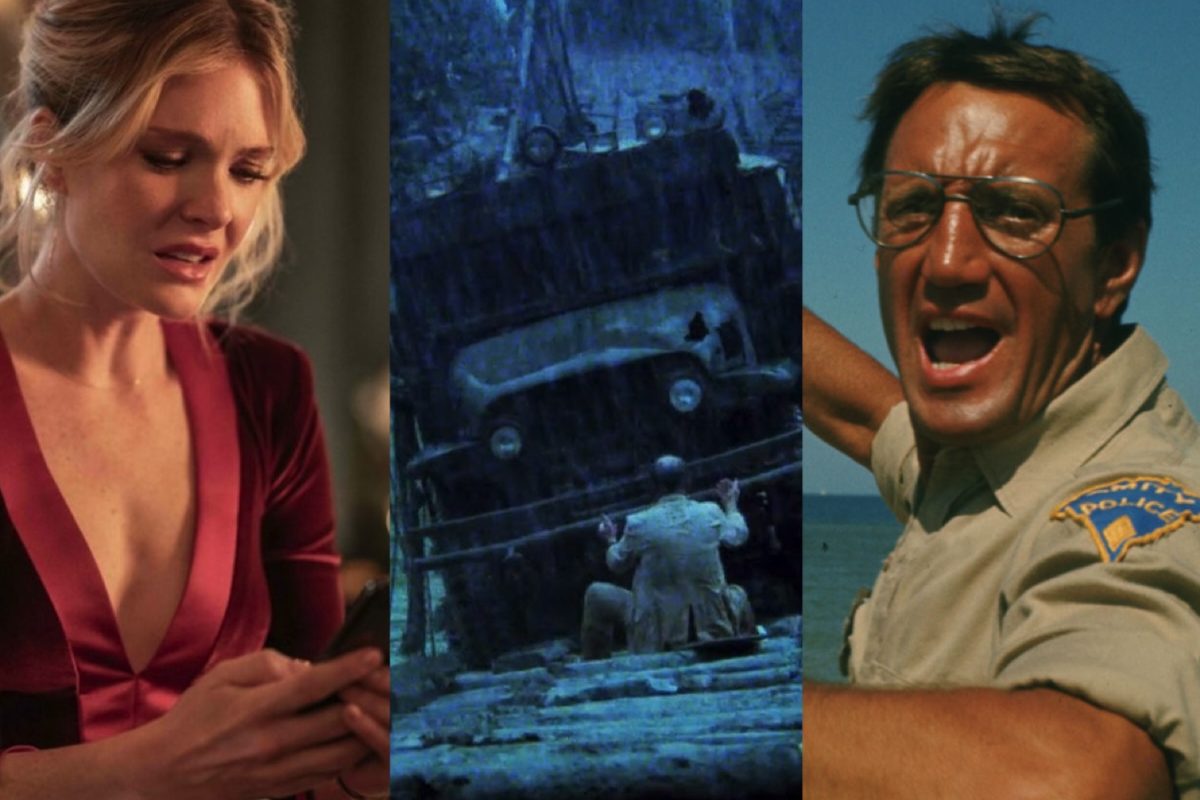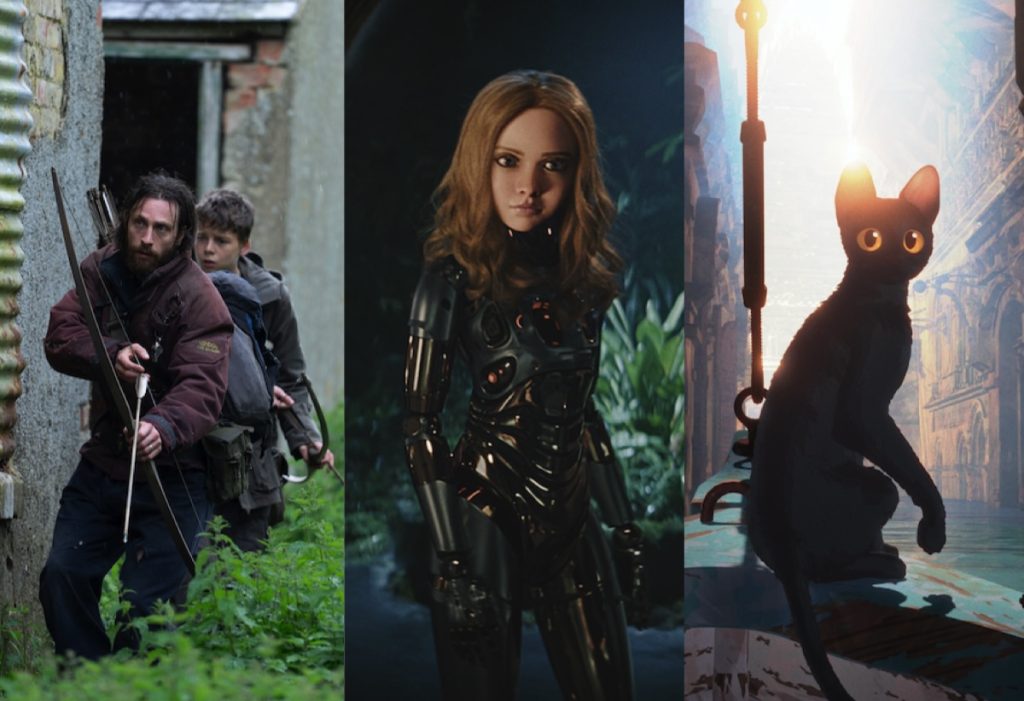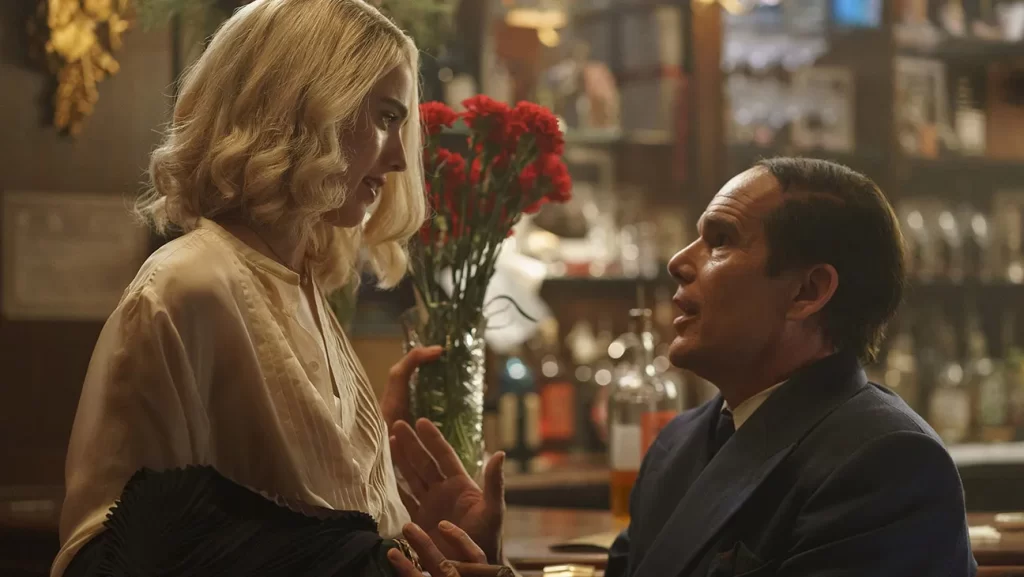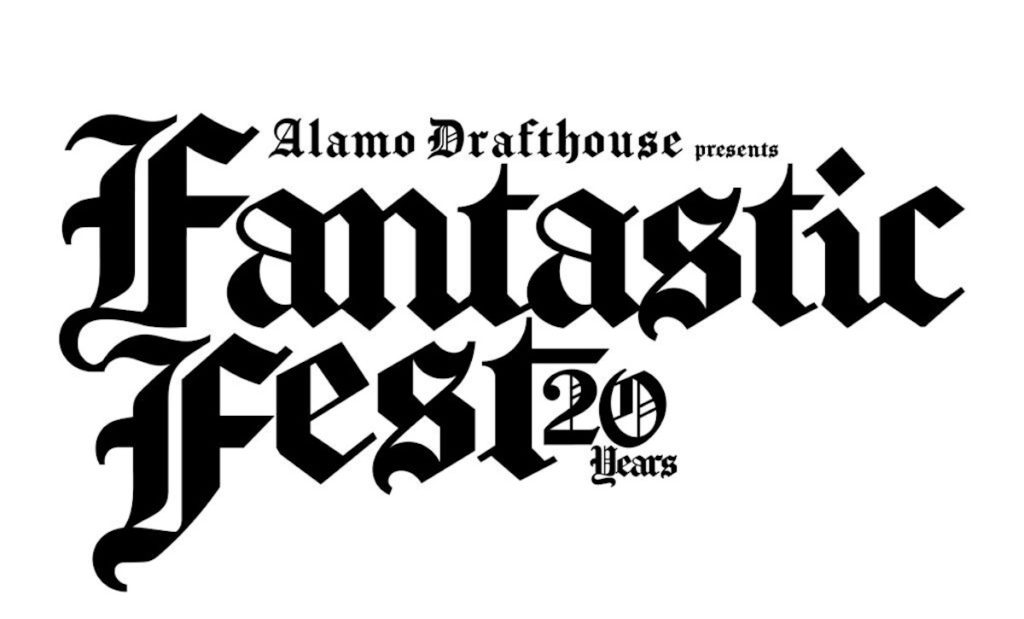Every Tuesday, discriminating viewers are confronted with a flurry of choices: new releases on disc and on demand, vintage and original movies on any number of streaming platforms, catalogue titles making a splash on Blu-ray or 4K. This twice-monthly column sifts through all of those choices to pluck out the movies most worth your time, no matter how you’re watching.
PICK OF THE WEEK:
Sorcerer: When William Friedkin’s remake of The Wages of Fear was originally released back in 1977, it was a highly-anticipated, big-budget effort from the Oscar-winning director of The Exorcist and The French Connection. Unfortunately, its arrival in the moviegoing marketplace was preceded, by about a month, by a little movie called Star Wars, and that picture pretty much lay waste to everything in its path. The very public failure of this risky picture put Friedkin in Director Jail for quite a few years, but in the years since, it’s been reappraised as the haunted and haunting masterwork that it is — preserving, if not amping up, the socio-political commentary and impeccable bad vibes of the original. With its grim worldview and bummer ending, it was a quintessential ‘70s movie that merely had the misfortune of hitting theaters right when that went out of style. (Includes new and archival interviews, behind-the-scenes footage, trailer, Friedkin Uncut documentary, and essay by Justin Chang.)
ON BLU-RAY / DVD / VOD:
Drop: The latest from director Christopher Landon, best known for energetic horror pictures like Freaky and the Happy Death Day duo, moves smoothly into thriller mode with this tense story of a first date gone horribly awry. Meghann Fahy is striking and sympathetic as a widowed therapist out for a fancy dinner with an app match who is thrust unexpectedly into a terrifying life-and-death situation. The tension is relentless, juiced up by Landon’s lively camerawork and compositions. (Includes audio commentary and featurettes.)
Tahara: You have to feel a little bit bad for director Olivia Peace; her Rachel-Sennott-at-a-funeral movie premiered a full year before Shiva Baby, but anyone who sees it now will compare it, possibly unfavorably, to that breakthrough hit. But if you can take it on its own terms, this is a fairly slight but mostly insightful coming-of-age story. Madeline Grey DeFreece is appealing as Carrie, the primary protagonist, while Sennott excels as her longtime best friend and quiet crush, a bit of tension that implodes over the course of the movie’s one long day. This is an inventive little character study, and a fine showcase for Sennott, who plays a total brat with real charm. (Includes audio commentary and essay by Sara Clements.)
ON 4K:
Thirty Two Short Films About Glenn Gould: “I simply have a facility with a certain kind of minutia,” Glenn Gould (Colm Feore) explains. “I always have.” Director François Girard appears to share that facility, constructing this biographical portrait of the Canadian concert pianist less as a biopic in the Walk the Line (or, anymore, Walk Hard) mold than a free-floating meditation on art, music, and life. The title is as direct as they come; Girard eschews the customary cradle-to-grave approach in favor of a series of non-chronological snapshots in shifting tones, timeframes, and styles. Some are dramatizations, while others veer into musical performance, documentary, and animation. It sounds slipshod, but Thirty Two Short Films is unexpectedly entrancing and unconventionally perceptive. (Includes audio commentary, new and archival interviews, archival documentaries, and essay by Michael Koresky.)
Jaws: Universal already put out Steven Spielberg’s mega-hit on 4K back in 2020, for its 45th anniversary; this 50th anniversary edition is basically the same release, with the sole addition of a new, 90-minute, informative and enjoyable Jaws @ 50 documentary. The transfer hasn’t been updated, and it didn’t need to be; the image is clean and sharp, and I heard things in the mix that have eluded me for years. Such a pristine presentation underscores that this remains an honest-to-God flawless film: tightly constructed, beautifully acted, by turns scary and funny and exhilarating. It’s one of the most universally acclaimed and commercially successful movies of all time, and it still somehow feels underrated – or, more accurately, taken for granted. It’s just accepted as common wisdom that Jaws is perfect, and done so often that it’s easy to forget what a magnificent juggling act it is. And if that’s the excuse you need to revisit it, well, feel free. (Also streaming on Peacock.) (Includes documentaries, featurettes, deleted scenes, outtakes, and trailer.)
Breathless: When Jim McBride’s drama (making its 4K debut from Cinématographe) hit theaters back in 1983, it was all but laughed off the screen. A Godard remake?! With Richard Gere?!? Ho, ho. But time has been kind to this freewheeling, sharp-edged, absorbing potboiler; at risk of getting too academic, it’s less a straight-up remake than a meditation on the question, “What does Breathless mean to me?” Much of its current reputation is thanks to the frequent boosting of Quentin Tarantino (who said of it, “When I saw this in ’83, it was everything I wanted to do in movies”); you can see the stylistic DNA of QT’s tone-hopping, cultural obsessions, and love of rockabilly (to say nothing of the hero’s French lover, a relationship echoed in Pulp Fiction). It’s a hangout movie, a vibe, a film about the way it feels to break the rules, to screw all day, to not give a damn. (Includes audio commentaries, interviews, video essay, deleted scenes, alternate ending, trailer, and essays by Justin LaLiberty, Justine Peres Smith, and Kristen Yoonsoo Kim.)
Sabrina: Billy Wilder’s 1954 romantic comedy (making its 4K debut via KL Studio Classics) isn’t up to the high standards of Sunset Blvd. before it or Some Like It Hot and The Apartment after, but as a breezy, sparkling, elegant helping of luxury porn, you could do a lot worse. Humphrey Bogart (playing against type) and William Holden are the temperamentally opposed scions of Long Island aristocracy; Audrey Hepburn is their chauffeur’s daughter, a plain Jane who comes back from two years in Paris as the very picture of beauty and class. The clear difference in age between Bogie (who always looked ten years older than he was) and Hepburn (ditto, but in reverse) is a hurdle the picture struggles to clear, but if you can get past that, there’s a lot to like here — your mileage may vary, but I’m partial to the running bits with Bogie and the plastic. Most importantly, Wilder captures the appeal, for little Sabrina, of watching this seemingly untouchable world, longingly, from a distance, and then becoming part of it. And in a way, the movie scratches that same itch for all of us. (Includes audio commentaries, featurettes, documentary, and trailer.)
Sky Captain and the World of Tomorrow: I still remember the hullabaloo that greeted director Kerry Conlon’s 2004 debut — a movie whose computer-generated imagery and trickery would change the way movies were made, we were told. It flamed out at the box office, so its impact wasn’t as keenly felt as anticipated, but Conlon was clearly breaking ground in terms of greenscreen work and all-digital environments. And yet, paradoxically enough, Sky Captain feels handmade; it’s full of winks and homages, to everything from Hitchcock to The Wizard of Oz to King Kong to Raiders (and the serials that inspired it), but it never feels cutesy or try-hard. There’s much less Angelina Jolie than I’d like (or that I was promised), but Talented Mr. Ripley alums Jude Law and Gwyneth Paltrow reignite their considerable chemistry, with each of them playing the kind of custom-crafted movie star turns that they do so well. (Includes audio commentaries, featurettes, original short, deleted scenes, gag reel, and theatrical trailers.)
Bring It On: Peyton Reed’s high school cheerleader comedy (like Sky Captain, hitting 4K via Shout Selects) was a big summer hit back in 2000, and it’s easy to see why: it’s bright, peppy, funny, energetic, and filled with beautiful people. But there are some tricky things happening under its shiny surfaces — a pointed examination of white privilege and cultural appropriation, and one in which the arc of history bends towards (social) justice. Which is not to imply that it’s all aged well; homophobic slurs land with a thud, even when they’re mouthed by ostensible villains. But it’s such an otherwise pleasurable experience that its sour notes pass quickly. (Includes audio commentary, featurette, deleted and extended scenes, wardrobe and makeup tests, and trailer.)
Road Trip: Todd Phillips’s directorial debut (hitting 4K via KL) has aged with similar unsteadiness; anything released this close to American Pie (with a prominent role for Seann William Scott, even) is going to run that risk. But there’s a genuine sweetness at the center of this story of a college dude (the always likable Breckin Meyer) hitting the road with an assortment of pals and hanger-ons to zip halfway across the country and intercept a sex tape he accidentally sent to his girlfriend, whom he thought had broken up with him (don’t ask). The hijinks vary from hilarious to infantile, but the performers are having the kind of good time that becomes infectious. (Includes R-rated and unrated cuts, audio commentary, featurette, music video, deleted scenes, and trailer.)
Dark City: When The Matrix became a cultural and commercial phenomenon in the spring of 1999, many of us wondered where its audience had been just a year earlier, when director Alex Proyas unleashed this similarly stylish story of alien takeovers and imagined realities. It remains a work of imagination and homage, mixing elements of film noir, science fiction, and brainy action into something altogether new and often astonishing. Rufus Sewell is a bit of a blank slate in the lead — but maybe that’s for the best when you’ve got Kiefer Sutherland and William Hurt chewing scenery on one side of you, and Jennifer Connolly doing her sexy vamp thing on the other. (Includes director’s cut and theatrical cut, new and archival audio commentaries, introduction, featurettes, video essays, and trailer.)
ON BLU-RAY:
Midnight: Mitchell Leisen is a less-discussed director than he should be, considering how many of the great melodramas and screwball comedies were guided by his hand: Easy Living, Remember the Night, Death Takes a Holiday, and this dizzyingly delightful 1939 confection (a new addition to the Criterion Collection) from screenwriters Billy Wilder and Charles Brackett. Claudette Colbert is a dream as a showgirl stranded in Paris, masquerading as royalty, who’s drawn into a convoluted plot to break up an affair; Don Ameche is the taxi driver who takes pity on her early on, and falls for her in the process. Colbert and Ameche are so good together — so verbally and physically compatible — that you almost get impatient waiting for their inevitable reunion, but Wilder and Brackett’s proficient plotting and quotable dialogue, coupled with Leisen’s crisp compositions and sparkling style, offer plenty of diversion along the way. (Includes audio commentary, featurette, radio adaptation, and essay by David Cairns.)
Thelonious Monk: Straight, No Chaser: Also joining the Criterion Collection is this unconventionally high-profile 1988 documentary (released by Warner Bros! Presented by Clint Eastwood!) about the legendary bebop pianist and composer. It’s a fairly free-form piece of work, with director (and frequent Maysles collaborator) Charlotte Zwerin focusing more on the moments of Monk’s life than the grand arc. He was a man of numerous demons, explored with sensitivity and thankful lack of sensationalism; the performance footage is unsurprisingly electrifying, but so is the more micro footage of Monk and his band at work. Even more than a music doc, it’s a personality profile, exploring his enigmatic persona and his unbreakable bond with the woman who loved him. (Includes introduction, interviews, featurette, trailer, and essay by Paul Grimstad.)
Looney Tunes Collector’s Vault – Volume 1: Warner Bros. may be perpetually clueless about the value of the Looney Tunes as an ongoing, feature-film-worthy entity, but you’ve got to give them this: they know that it’s a cash cow in the physical media space. Cartoon dorks like me will keep picking up their Blu-ray releases, even if they’re repeating shorts from previous DVD box sets; to their credit, this first, two-disc “collector’s vault” compilation mostly lives up to its name, presenting a nice mixture of more obscure, early toons (including those altogether odd, embryonic versions of Daffy, Porky, and the like) with more familiar later comedies that haven’t yet made the HD leap. The results are occasionally uneven (and, in the interests of completion, include some currently déclassé characters), but there’s a laugh or two to be found in even the wobbliest of these.
4-Film Collection: Gary Cooper: After ace collections featuring Clark Gable and Elizabeth Taylor earlier this month, Warner Archive gives us another welcome compilation of starring vehicles for one of the icons of mid-century cinema. The late-‘50s titles Friendly Persuasion, Love in the Afternoon, and The Hanging Tree all catch Cooper in his post-High Noon career bounce, relaxed and engaged. But the best picture in the set is the earliest: Howard Hawks’s 1941 war drama Sergeant York, with Cooper winning his first Best Actor Oscar as a rural hellraiser who becomes a devout Quaker, which proves somewhat inconvenient when he’s drafted into WWI. He seeks conscientious objector status, which is denied, and the screenplay (by, among others, John Huston) thoughtfully grapples with the big ideas of patriotism and faith. Cooper is affable, low-key funny, and so unapologetically earnest that he deftly navigates the closing scenes from pure corn to genuine pathos. (Includes audio commentaries, shorts, cartoons, featurettes, and trailers.)
Enter the Void: Narratively uncompromising and visually stunning, Gaspar Noé’s 2010 mediation on drugs and death (out in a new Blu-ray from IFC Films) is a lengthy, contemplative, and demanding picture—most audiences will find it too long, too repetitive, and too indulgent. But those who are patient enough to lock in on its specific wavelength will find it visually daring, narratively uncompromising, and richly rewarding, and its first-person POV visual scheme feels like ground zero for a lot of what’s happening these days in the world of online video creation. (Includes director’s cut and U.S. theatrical version, audio commentary, video essay, deleted scenes, VFX reel, featurettes, trailers, and teasers.)
Edward II: In one of his final films, the great director Derek Jarman adapts Christopher Marlowe’s Renaissance-era play, and does something semi-miraculous in the process: he both mounts a credible film version while simultaneously commenting upon, and even criticizing, the source material. It makes more sense when you see it; suffice it to say that Jarman does not tamp down his radical sensibilities in service of a classic, and also that he instills enough trust in his actors (including Steven Waddington, Andrew Tiernan, and a very in-the-groove Tilda Swinton) that they’re game for all of his nutso notions. (Includes featurette and booklet with forward by Swinton and essays by Bruce LaBruce and Kyle Turner.)
Swimming to Cambodia: Three years after Stop Making Sense, Jonathan Demme directed another concert movie with quite a different energy: this performance film of one of Spalding Gray’s signature staged monologues, this one (mostly) focusing on his time in Southeast Asia, playing a supporting role in Roland Joffe’s 1984 drama The Killing Fields. His writing, as ever, is tremendous, weaving in detours, meditations, all-out comedy, and casual dissection of his various neurosis, and as a performer, you cannot take your eyes off him. Demme is well-matched, echoing his star’s tempo, knowing when to go in close and when to keep his distance, while sparingly but effectively incorporating Killing Fields clips. Riveting, searching, and frequently funny; long hard to find for home viewing in any form, it gets the Blu-ray treatment from Cinématographe with their customary care. (Includes audio commentary, interviews, Pure Nonfiction podcast episodes, and essays by Marya E. Gates, Chris Shields, Keith Uhlich, and David M. Stewart.)
Made in New Jersey: Films from Fort Lee: In the early days of moviemaking, before the industry was centered in Hollywood but when it was too difficult to shoot a variety of films in New York City, pioneer filmmakers looked across the Hudson to the town of Fort Lee, New Jersey, and made it (for a time, at least), a hub of East Cost production. This terrific two-disc set from Milestone collects several of the key silent movies made in Fort Lee (including two by D.W. Griffith and the first surviving Robin Hood), plus a sound Ukranian operetta directed by Edgar G. Ulmer (Detour), and two documenatries (one from 2015, one from 1935) about the city and its production. A worthwhile purchase for silent scholars and anyone with a passing interest in the art’s early days.
Scarecrow in a Garden of Cucumbers: The fine folks at the American Genre Film Association (AGFA) strike again with director Robert J. Kaplan’s cheerfully vulgar, go-for-broke 16mm New York musical, featuring Warhol superstar Holly Woodlawn in her first leading role (one of the first features ever with a trans lead). It vibrates with theater kid energy — everyone is named after iconic film and stage characters, including Eve Harrington and Stanley Kowalski — Woodlawn is a hoot, the supporting players (including brief cameos by Bette Midler and Lily Tomlin) are all memorable, the period NYC photography is to die for, and the picture’s bawdy sensibility and DIY style make it endearing enough to forgive the rougher patches. (Includes audio commentary, interview, essays by Jeff Copeland and Caden Mark Gardner, and the bonus feature Gums, from director Kaplan.)
The Annihilation of Fish: This forgotten feature from the great Charles Burnett (Killer of Sheep, To Sleep with Anger) was, until this Milestone Blu-ray, unreleased, and early on you can guess as to why; the script is no great shakes, and the opening stretch is pretty rough. But once stars Lynn Redgrave and James Earl Jones finally share the screen, it starts to work; he’s tragic and sympathetic as a Jamaican widower haunted by demons, and she’s wildly funny as an eccentric who has recently ended her long-time relationship with the ghost of Puccini. It gets a little too cute in spots, but Burnett’s sure hand is ever-present, and Fish offers a rare opportunity for its stars to flex in late-career starring roles. (Includes audio commentary, Q&A, trailer, and bonus feature The Final Insult, from director Burnett.)



